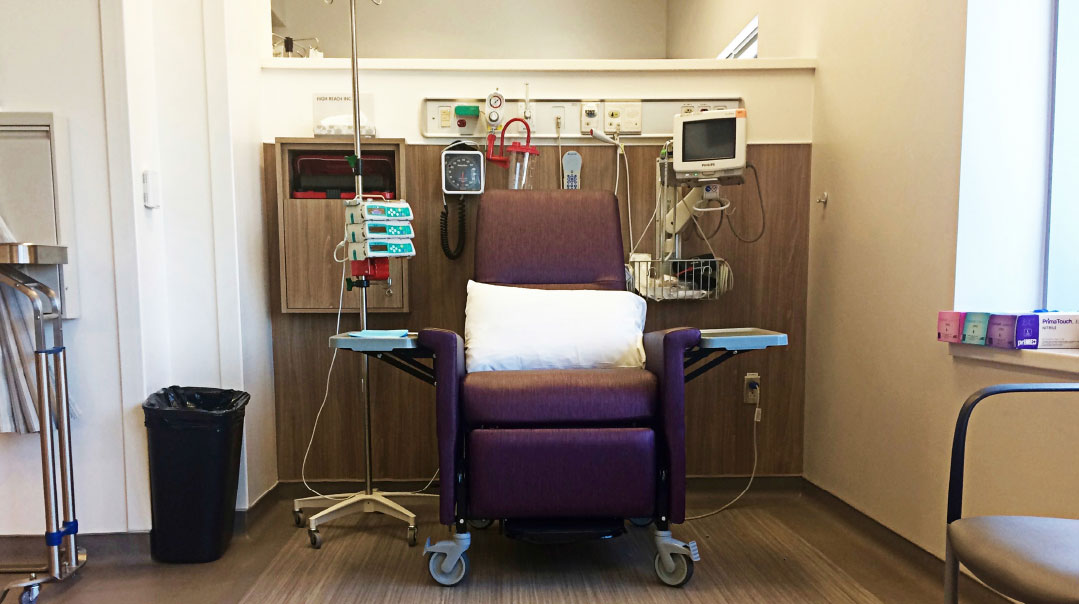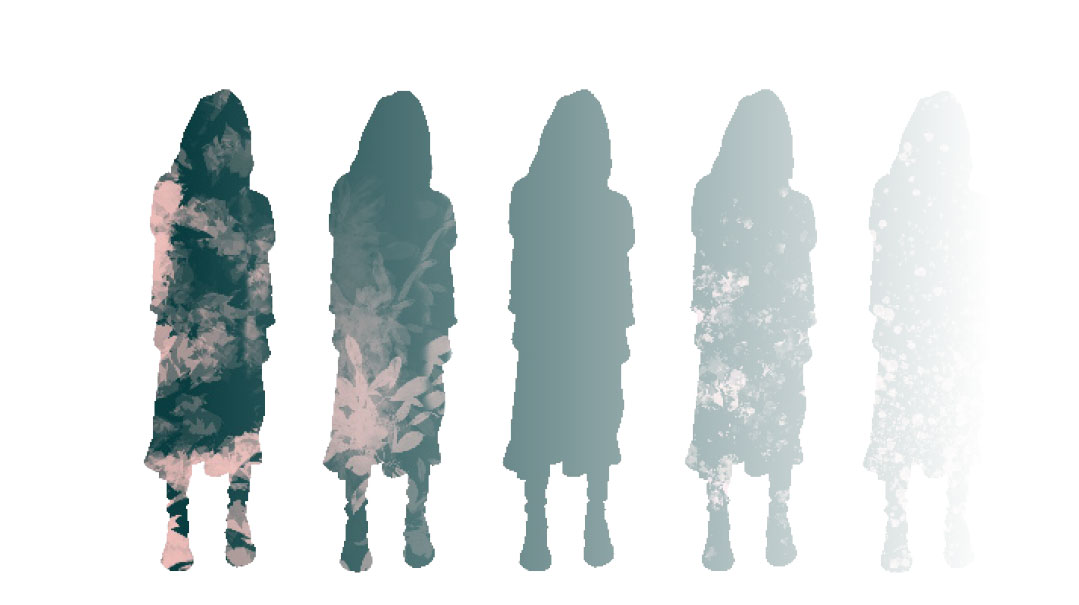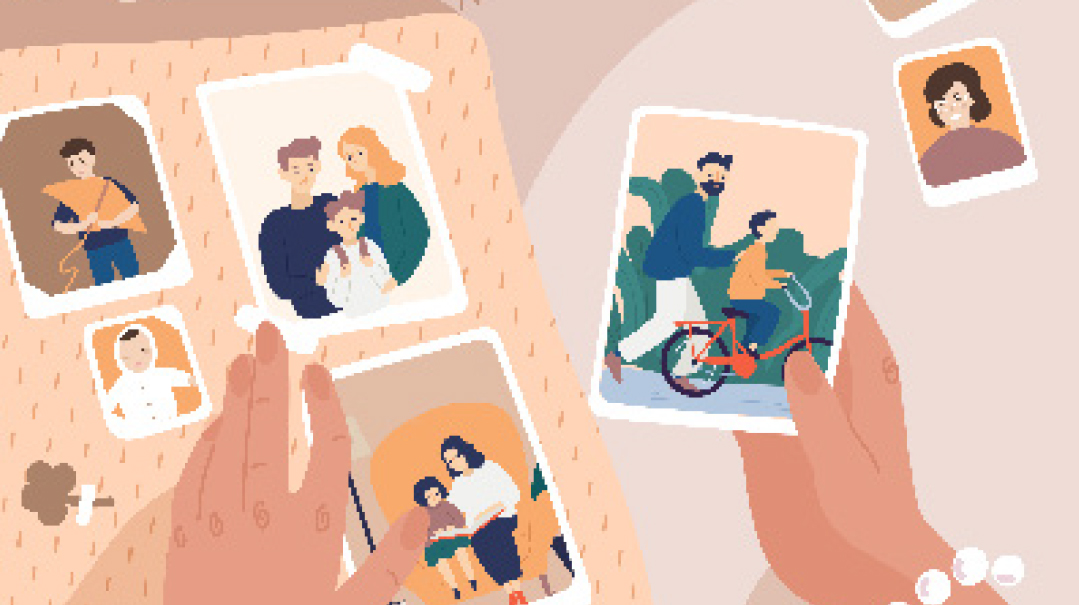Detours

I quickly pushed my worries away. I was, after all, a kallah. There was enough drama going on in my life

Bruchy
It was a week before Rosh Hashanah — and four months to my wedding. I’d finally decided on an apartment, and my calendar was crammed with appointments. Life was full. Very full.
I was on my way to my first gown fitting when I glanced in the mirror before leaving. I did a double take and looked again. My left cheek was significantly larger than my right, and it sagged slightly. It must be the lack of sleep, I told myself. Wasn’t that what we blamed everything on? I decided to make it an early night.
But the next morning, my cheek was still swollen, maybe even a bit larger than it had been the day before. With my mother’s pleas echoing in my ears, I went to my family doctor to check it out. I’m not one for doctors, and I hate taking medicine, but my wedding was approaching, and I figured that if a dose of antibiotics would wave it away faster — whatever “it” was — and allow me a calmer engagement, then I might as well.
The doctor immediately diagnosed me with mumps, which had been experiencing a resurgence, with multiple outbreaks reported across Israel. Armed with a prescription, and relieved that I’d opted to get checked out, I headed to the linen store to tackle more of my shopping. Frilly lace and delicate sateen instantly relegated my worries to the back of my mind.
“Bruchy, I don’t see that your cheek looks any less swollen,” my mother mentioned a week later as we pored over bridal magazines searching for an exquisite style for the skirt for my gown.
I looked up from the magazine. “I’ll go back tomorrow to check it out.” I knew she was right. The medication hadn’t reduced the swelling at all. There was a whiff of concern in my mother’s eyes, and I felt an uncomfortable pressure in my heart. But I quickly pushed my worries away. I was, after all, a kallah. There was enough drama going on in my life.
The next visit prompted a new diagnosis and a new prescription. “Meningitis,” the doctor announced after prodding and poking my cheeks. “Inflammation of the meninges.”
When I’d finished my next prescription without a single improvement, I returned to the doctor for the third time. After that visit I started feeling like a recipe being tested and perfected. A bit more of this medication, a pinch less, try this one, add this, exchange with another, all in attempt to yield perfect results. But nothing helped. Finally, seven weeks before my wedding, my doctor decided to send me for a biopsy.
“Have someone go to the Kosel to daven for you,” my doctor advised, looking up from the forms she was filling in.
That was classic advice for our family doctor. In typical Sephardic fashion, she was equipped with segulos; she whispered tefillos at every given opportunity. We were used to the heartfelt murmurings that accompanied each vaccine she administered, so this warning didn’t alarm us. My calendar is so full, I thought. I wonder when I can fit in a bus ride to the Kosel?
When I returned from the doctor, my younger sister Malky took her typical pleasure in teasing me, laughing at how my eyes would light up as I heard my chassan’s name.
“Seven weeks, Bruchy! Seven weeks! You hear that? You and Shimon under one roof!” She chuckled. As much as I tried to prove her wrong, I couldn’t control my excitement. I’d been sold from the minute I met Shimon. “One beshow is enough,” I’d protested when my parents insisted I meet him again and sleep over my decision. “This is my bashert, and I’m ready for the l’chayim.”
Malky forged on as my smile widened. “Instant results. All I need to do is say Shimon and your day is made. This is no joke, Bruchy. How will you bear another seven weeks?”
None of us were worried about the outcome of the biopsy. After all, we had a wedding coming up, and our concern was getting rid of the bump before that — think of the wedding pictures! When the biopsy results returned, our family doctor called. “The results came back and it requires further testing. Go to the hospital. You’ll be there for two days of intensive testing.”
In the car my parents discussed wedding menu options. My father craned his head to see me through the rearview mirror. “So, what does the kallah say should accompany the meat? Sweet potato stacks or mashed potatoes?”
“Come on, Ta, you know I’ll be too excited to eat at my wedding. Choose whatever you’ll wanna eat.”
The car ride was pleasant and comfortable. The proverbial quiet before the storm.
Then we entered the hospital. At that point, I became a pin cushion to myriad nurses and doctors. As a means of introduction, after asking for my name, a needle would be injected in my arm. There were various cancer terms being thrown around. All the time. The mood changed instantly. I extended my arm for my umpteenth blood test of the day and began to mentally eulogize myself.
The next day, we were called into the doctor’s office for an official diagnosis. Turning to me, the doctor asked, “Bruchy, what do you know?”
I sat up straighter and tried to sound very confident as I addressed his question. “I know that I have cancer, and that I’m getting married in less than two months.”
Thoughts, rational and irrational ones alike, clawed at me like a hungry tiger. How will I ever have kids if my death is imminent? I hope my gown will go to someone who appreciates my taste. Who will tell my chassan? What will happen with the lease we signed? Who will remember me after I die? Will any of my friends be Shimon’s new kallah?
My thoughts were interrupted by the doctor’s monotone. Drawling on and on, he finally gave the monster a name: nasopharyngeal carcinoma (NPC). Sparing no details, he laid all the cards on the table, detailing my prognosis and what treatment would entail.
I kept my expression neutral for as long as I could, but before the meeting came to an end, I made a hasty exit and locked myself into the hospital bathroom in the hallway. A nondescript mirror hung on the wall. I instinctively looked away. Facing myself was facing reality. Was I ready to accept? To internalize?
I gazed into my eyes, pooled with tears, then pointed an accusing finger at the mirror. “Seven weeks? Did you hear what Malky said this morning? Seven weeks to your wedding! Wedding? What wedding? You need tremendous emunah to even believe there will be a wedding one day. And if you’d be well enough to stand under a chuppah one day, who’d stand next to you? Which normal boy would consider marrying a sick girl?”
Droplets of mascara-streaked tears fell, staining the perimeter of the bathroom sink. I didn’t even bother wiping them.
“You see this hair?” I held up a bundle of hair for the mirror to see. “You can wave it goodbye. You know those pictures of bald chemo patients? Welcome to the club! In a few weeks you’ll look like them. Forget about your calendar, forget about your countdown. You have different things on the agenda now.” I reached for the roll of toilet paper to wipe my eyes but my hands were shaking, and I jostled the roll, which unfurled onto the floor.
“Goodbye hair. Goodbye Shimon. Goodbye to the life you always dreamed of.” I looked back into the mirror. A swollen, unrecognizable red-eyed face returned my stare. “And Malky, you have way more than seven weeks to tease me now.”
I sank down onto the bathroom radiator, letting my body heave with sobs. Light rapping sounded on the door, reminding me that my parents were waiting. I was in no mood to face anybody. Not the world, not my family, and not reality. Keeping the door shut was tempting, but staying in the hospital bathroom forever wasn’t exactly an option.
I opened the door a crack. My parents, looking powerless and helpless, entered, their shoes stippling the toilet paper on the floor. My father closed the door, and in that tiled, nondescript hospital bathroom we melted into tears. We cried and cried. And then, abruptly, we stopped.
That was the last time I cried until my hair fell out.
It had been such an overwhelming day that it wasn’t until much later that the thought struck me.
“Oh, no. We need to tell them. What will we tell the other side?!”
Mr. Feldman
That night, my wife pointed out that we’d need to offer the chassan’s side, the Webers, the option of breaking off the shidduch. I balked. What if they took us up on it? How could I handle another potch? And how would we break the news to Bruchy — wasn’t she going through enough?
Although she didn’t show it, my wife was on pins and needles, too. She walked around like a zombie trying to pack and collect her belongings for the hospital, but failing miserably. I tried to help but kept putting the same item into the suitcase again and again, removing it, then misplacing it. I couldn’t breathe.
Shimon
I’d returned home to Europe from yeshivah in Eretz Yisrael two weeks before and was deep in the swing of wedding preparations, when I realized that my parents, generally talkative and chatty, had turned uncharacteristically silent.
Later that night, my father summoned me to his study. I wondered why. A shalom bayis schmooze? Some pre-marriage mussar? Do I need to go collect money to marry myself off?
I entered the study cautiously. My parents were both seated on the worn-out leather armchairs, my mother perched at the very edge of her seat, chewing the inside of her cheek. My father’s wrinkles seemed to have deepened.
“Did anyone die? Is the engagement called off?” Those were the two worst-case scenarios I could think of.
It felt like an eternity until they finally explained the situation, outlining in vivid detail Bruchy’s treatment plan. “Every situation is obviously different, but we want you to know what it entails.”
I didn’t know what to think. The news affected something that was a part of me, but on other hand, it wasn’t a part of me yet.... Bruchy was my kallah, my future partner. True, she was virtually a stranger to me, but one day she would be the closest person in my life.
Did we still have a future together? How would her illness progress? What if she could never have children?
I found my voice. “Are you thinking of breaking the engagement?”
My parents exchanged looks. Then my father spoke. “That decision, Shimon, we’re leaving to you.”
“I hope you’re not considering it!” My heart was racing and I felt myself break into a sweat. “Were you? This could’ve happened during sheva brachos too, you know!”
“Shimon,” my mother said softly. “We feel the same way you do. This is something Hashem wants all of us to go through.”
My father walked over and embraced me, an act that was completely out of character. “Toughen up. People will ask and say some very funny things,” he warned me.
Bruchy
We heard back from the Webers within 24 hours, and then we could breathe again. But there was no time to bask in our relief — before we knew it, we were back in the hospital.
I was ushered into a room full of interns. A large screen affixed on the wall displayed my MRI results, and I was asked to stand beneath the screen. I blushed as nearly two dozen medical students stared at me while the doctor lectured. Then each of the students got a chance to fiddle with my bump. I was a guinea pig in all its glory.
This humiliating experience plus a handful of phone calls reinforced my parents’ decision to proceed with treatment abroad. We were going to New York.
Before we left, one of the physicians advised us to have a feeding tube and endotracheal tube inserted. “In the event that something goes wrong with the treatment the airway can dangerously restrict,” she warned. “This tube can be lifesaving.”
As she spoke, a patient who’d had the tubes passed by the open doorway. I instantly decided that I wasn’t willing to be permanently scarred like that.
“You know you’re endangering your life,” she said. Somehow that didn’t scare me; I found the scars on that patient’s neck far more terrifying.
Mr. Feldman
To everyone I’m this strong macho kind of guy. A strict boss, a firm father, a tough-exterior kind of friend. But in the doctor’s office, I melted into tears like a baby. My wife, always the softie who never raised her voice, was a bulwark of strength. I was a weeping weakling.
The first Shabbos after the diagnosis, I stood up to make Kiddush. I looked around at my lichtige family and thought about the journey that awaited us.
Last Shabbos we’d been a regular, normal family, joyfully preparing for a wedding. Instead of the words of Kiddush, I began sobbing once again, my tears mingling with the wine. Before long, everyone had joined in. The joy of Shabbos was replaced with heavy sadness.
My wife shot me a look. Since then, I’ve cried only in private, saving my tears for when I drive from the airport to the hospital. I had to be there for my family.
Mrs. Weber
From the moment we drank l’chayim, I was in love with Bruchy. She had this natural way of making everyone around her feel comfortable. And when I learned of her diagnosis, I felt enormous pain. I remember sitting by the computer as my husband told me the news, pressing down on the keyboard too hard and too long, a mumbo jumbo of numbers and alphabets running on the screen as if also startled by the news. A road of uncertainty stretched ahead of us. Uncertainty and also hope.
Hope? Yes.
Bruchy’s diagnosis came four years after we celebrated our son Leiby’s seudas hodaah.
Although Bruchy’s form of cancer was very different from Leiby’s, the fact that Leiby was a survivor, that he’d battled and won, provided us with a tremendous measure of comfort and hope.
Bruchy
The roller-coaster ride had officially begun.
I began treatments on the Friday night after we landed in New York. The gravity of my condition allowed for no postponement. On Sunday I left the hospital for a few days, returning on Thursday night for the next dose. Memories of that first lonely Shabbos in the hospital had me determined to go home.
The doctor looked at me pityingly. “If you can walk from your bed to the door, we’ll release you.” I mustered strength I did not possess and took those few steps. Whoa! They let me go home for Shabbos! I was thrilled.
But it turned out that going home was a terrible idea. All through Shabbos I grew progressively weaker; I could barely keep my eyes open. I returned to the hospital on Motzaei Shabbos. All of my counts had plummeted. I was choking on my own breath. Before long a team of doctors was swarming around me. My airways were constricting due to the chemo.
As I drifted in and out of consciousness, the doctor’s words reverberated in my ears. In the event that something goes wrong this can be lifesaving. You’re endangering your life. Death was around the corner. But then another voice, a stronger, more powerful one, took over. It was the voice of the gadol I’d gone to see a few days earlier.
Ever persistent, my mother had dragged me to go for a brachah. Due to my weakened state, we were summoned in first. The gadol showered us with beautiful blessings. But my mother wasn’t willing to let go. “Promise. Promise that she will be zocheh to nachas.”
The gadol shook his head, not ready to promise. Then he looked up.
“Is the kallah ready to take on a kabbalah?”
In a naaseh v’nishama kind of acceptance, I nodded. But when the gadol explained what he wanted me to do, I balked. I’m reserved by nature, and the kabbalah required me to completely step out of my comfort zone. How could I agree to do something as mortifying as infusing other cancer-stricken patients with chizuk?
He waited. And waited some more.
Finally, I agreed. A moment later his blessing resonated fervent and clear. “Tzedakah tzatzil memaves. A healthy mother. A healthy grandmother. A healthy great-grandmother.”
And as the doctors struggled to open my airway, I relaxed. The gadol had promised that I’d live to see my great-grandchildren.
The doctors had initially told me it’d be at least a month until my hair started falling out. But when my body rejected the initial form of treatment, my chemo protocol changed. I was left with no time to even arrange a wig.
Parting with my hair was especially harrowing for me. As a chassidish girl who was going to shave post wedding, I was parting with my hair forever. My friends all got emotional when they got their after-wedding haircut. But they were in a sheva brachos bubble, off in la-la land, on top of the world. I was in the hospital, facing an unknown future.
I stood in the shower and watched bundles of hair being pulled toward the drain, every last vestige of my dignity spiraling downward. The best case scenario, I knew, meant that there wouldn’t be enough time before my wedding for my hair to grow back.
I couldn’t bear to look in the mirror and see how my appearance made my status as cancer patient so obvious. I hadn’t even had the time to I’d shop around for some flamboyant, fun bandanas.
Amid the tumult, an angel in the form a woman in a short blonde wig stepped in and literally took the wig off her head for me, assuring me she had another one at home.
Still, until my custom wig was ready, I avoided mirrors, car windows, even cell phone screens — anything that could show me my reflection. Like a young child who covers her face in the belief that nobody can see her, by evading mirrors, I tried to convinced myself that I still had my hair.
Shimon
There were certain things that helped me stay afloat. Every morning following the diagnosis I awoke early to recite the entire Tehillim. I’d always been a chassid of Reb Leibish Leizer of Antwerp, although never on a personal level. As soon as I learned of Bruchy’s diagnosis, I booked a ticket to Belgium.
In the waiting room, I waited my turn like everyone else. As soon as I entered, without my even being introduced, Reb Leibish Leizer asked, “Are you the chassan of Feldman?” He then pointed to a pasuk in Tehillim that had Bruchy’s name and my name in it. It was reassuring to see this, to gain confidence that Bruchy was my zivug and everything would be all right.
I then asked him what I should tell people. “Tell them the reason you’re pushing off the wedding. Zorg nisht, everything will be okay.”
His words helped me keep my head high when people made insensitive remarks. A bochur stopped me on the street a few days after the news spread. “Nu, when’s the wedding?” I told him we were still unsure. “You think I don’t know?” he retorted. “I just wanted to hear what you’d answer.”
Expressive by nature, I sat and discussed my fears and worries with my parents. We often discussed the indefinite wedding date.
I kept in close contact with my then-mechutan and flew to New York to visit Bruchy twice. Visiting Bruchy was the best idea. The minute I saw her I felt an enormous weight fall off me. She was still her same sweet, cheerful self.
Mrs. Weber
As soon as word was out, a handful of “helpful” people found it important to call me with “brilliant” advice. “Shimon is a great boy. Why does he have to start his life with a potch in punim?” or “You know that chemo patients aren’t able to have kids.”
They all made sure to “speak from experience” and tell me how, as parents, we were being selfish. Others also told us that the Feldmans were hiding information from us.
At first, we got hysterical and called the Feldmans after each such report, but eventually we learned to trust them. But all of the well-intentioned advice made our situation so much more complicated. I learned to nod zombie-like and thank people for their recommendations. It wasn’t easy.
Mr. Feldman
In the beginning, the Webers kept calling us in a panic every time they heard something new. A few weeks added to the treatment schedule? There must be something we’re not telling them. New tidbits of information? We were probably keeping them in the dark.
We were happy to be open with them, but we knew that these repeated bouts of alarm were a result of gossip. The phone calls escalated our stress tenfold. Every time, I reminded them that they could decide if they wanted to wait for Bruchy. Finally, they learned to trust us.
I bestowed Shimon with gifts at every opportunity. We spoke nearly every week.
Mrs. Weber
As the mother of the chassan, I wasn’t overwhelmed with chasunah prep: Shimon’s shtreimel was being crafted, the invitation list was being updated, and that was pretty much it. We were going to do the bavarfen at home so there were no caterers to cancel. Compared to Bruchy’s family, we were bored.
Since the engagement, Bruchy had called me every week. She upheld her tradition during treatments too, and her candidness was refreshing. She was open about how she was feeling and always asked about Shimon and how he was holding up. We discussed the symptoms and aftereffects; I was even able to assist with tips I’d culled from Leiby’s sickness.
Bruchy was always open to suggestions and maintained upbeat conversations. My appreciation of her only increased.
To the Feldman’s credit, I didn’t need to pry or go behind their backs for more information. They shared and discussed everything, including us in the picture as if Bruchy were already our child.
And, of course, as the shvigger, the proverbial “close your mouth, open your pockets” was very applicable. My job was to not ask much and to send packages and goodies and offer assistance.
Bruchy
Seven weeks passed in a blur. By the time the initial date for our wedding arrived, I was barely aware of the calendar. There was no way in the world I would have been able to muster strength to get into a gown, dance, accept and greet well-wishers. The sheer thought of people had me gagging and reaching for a bucket. I’d spent months scribbling the date all over the place; now I was too weak to notice it.
But a cheer-up squad, who hadn’t forgotten, was there to lift my spirits. A party bus awaited me as I stepped out of the hospital. Streamers and flashing lights and balloons covered every inch of the bus; food and music seemed to be spilling from every corner. I felt like a celebrity. The only thing missing was a swarm of paparazzi.
With a handful of close friends and some family members who flew in, we conducted a mini wedding. My mood was magically lifted and the day ended on a note of hope.
My thoughts drifted to my would-be husband. His heroism and courage kept me fighting. I could only hope there was someone across the ocean lifting his spirit, too.
Shimon
The day of our would-be wedding was shockingly normal. My family members and good friends barged into my room with music and shtick to lighten the atmosphere, but the only one I was really interested in was Bruchy.
Later, after everyone left, I was so happy to hear that special people made sure her day was memorable, too. It was a painful day for me, but Bruchy was in a whole lot more pain.
In our chassidish circles, talking to and meeting your kallah during the engagement is not an accepted practice. Our situation obviously allowed for exceptions. I spoke to Bruchy every week during the six months leading up to our rescheduled wedding. The relief that washed over me while we spoke was revitalizing. It was comforting for me to see that my kallah was still normal. When I came to New York to visit, we also did dating kind of things, going to hotel lobbies and restaurants.
The visits infused us both with hope. At times when all I wanted was to pick up my hands and surrender, I remembered them. There was something I was counting down to. Something great was awaiting me. Someone I was battling for.
Finally, after six roller-coaster months that seemed to stretch for an eternity, a healthy Bruchy and a reborn me stood under the chuppah. There was not a dry eye to be found at that wedding.
Once we were finally married and living in Eretz Yisrael, we were so grateful that Bruchy hadn’t done her treatment there, that we weren’t walking on streets that evoked unpleasant memories, on pavement where she’d felt “crazy nauseous” or passing the buildings where she’d thought “this is the end.”
The harrowing memories were across an ocean, out of sight. And the two of us started a new life together.
Epilogue: Bruchy
Apparently, it was destined for us to maintain a relationship with the disinfectant smell of the hospitals, doctor’s white coats, and nail-biting test result waiting. Our patience was tested yet again after our wedding.
Becoming pregnant was another (expected) hurdle, but this medical challenge was considerably easier as we faced it together as a couple, a unified pair.
It’s now three years and myriad obstacles and tests and trials and challenges and a beautiful little newborn girl later. We have a beautiful family bli ayin hara.
Like Shimon always says — it was worth the wait!
(Originally featured in Family First, Issue 675)
Oops! We could not locate your form.













